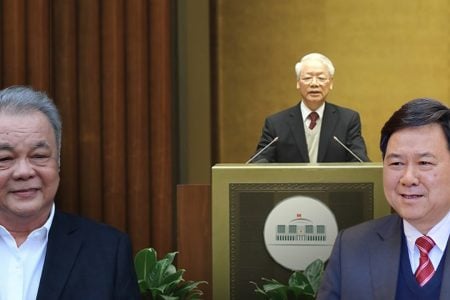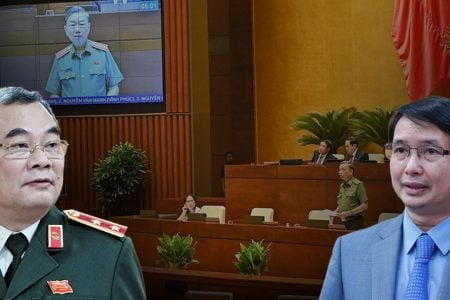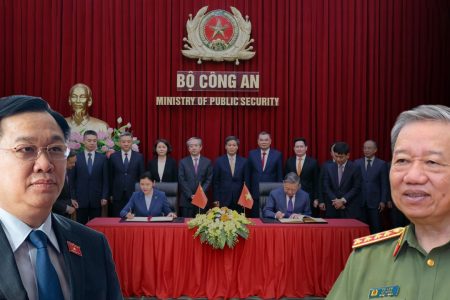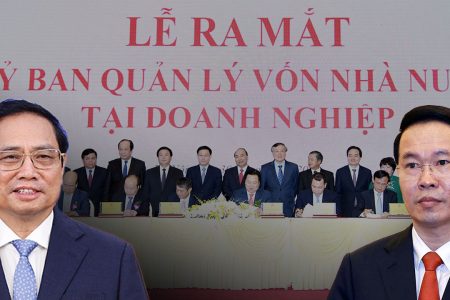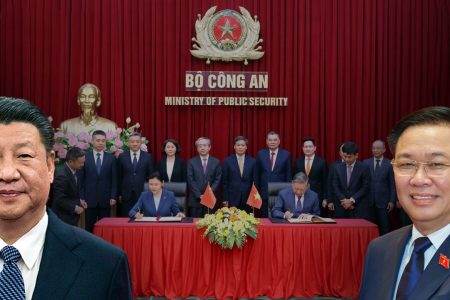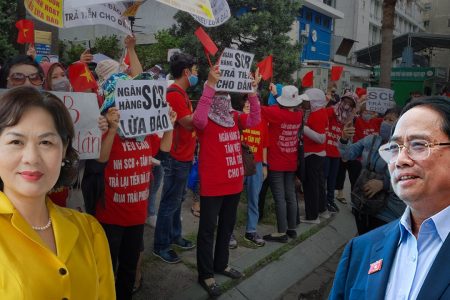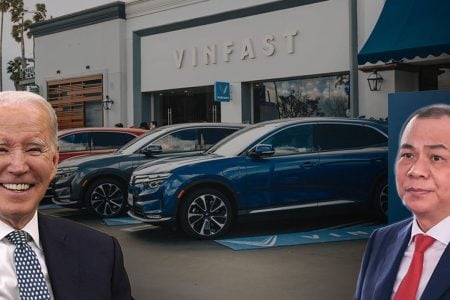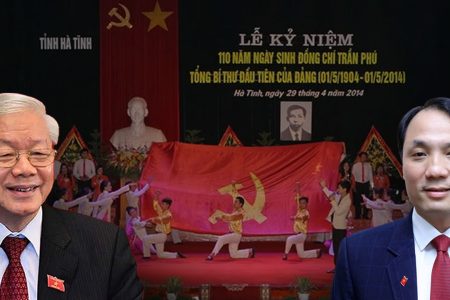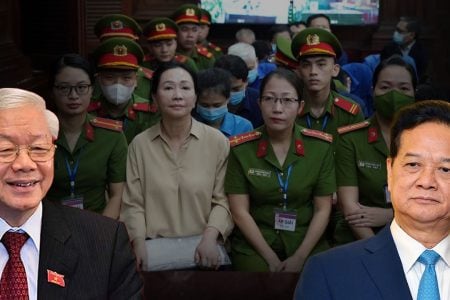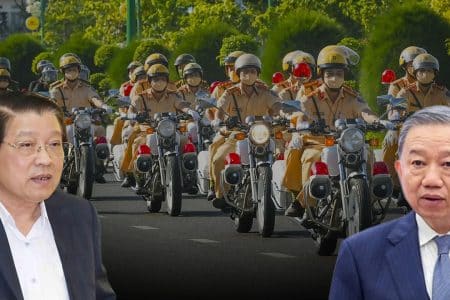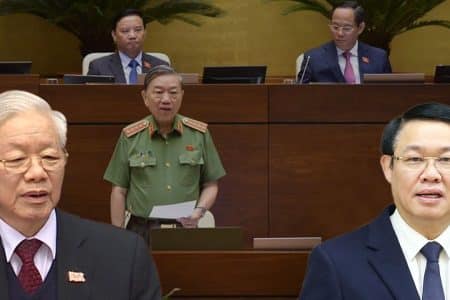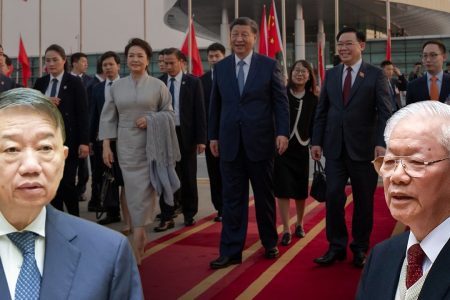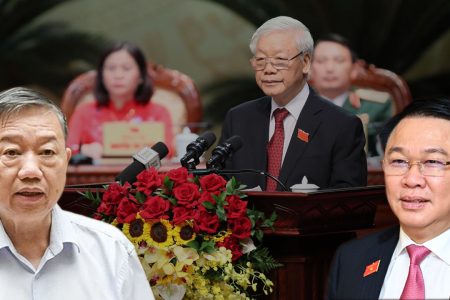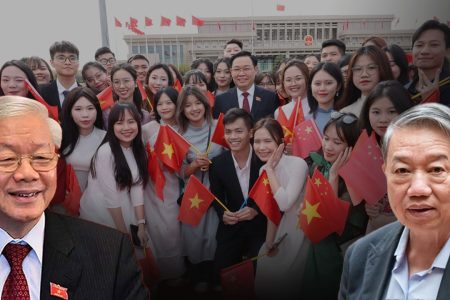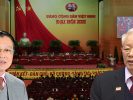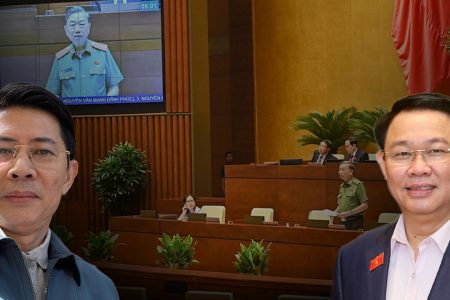In the context of a series of countries in the world acting aggressively to prevent the wave of Chinese enterprises acquisition, Vietnam is a country close to China and has a very close trade relationship with the giant country and needs to build the barriers so that key national enterprises and assets do not fall into China ‘s hands.
Analysts say that Chinese investment in Vietnam is of little benefit to Vietnam.

Professor Tran Van Tho, currently living and working in Tokyo (Japan), said: “[…] from the purely economic perspective, FDI from China generally (except for exception) belongs to the countries having poor-quality investment.”
Explaining this, Mr. Tho gave two reasons.
Firstly, it is a very short history of Chinese multinational enterprise formation, especially in a market economy period that is not long enough to establish corporate governance and business culture.
In fact, of the 100 largest Chinese multinationals, 81 are state-owned or joint-stock but the state is the biggest shareholder. When the business culture and corporate governance system have not been established, strong investment abroad will easily conflict with interests in the host country, causing negative impacts on the environment and on sociocultural relations of the host nation.
Secondly, many enterprises have not accumulated business resources such as technology, management knowledge, so far the main form of FDI abroad of Chinese enterprises is merge and acquisitions (M&A). This is the most intrusive form of business ownership in foreign markets. The number of M&A projects of Chinese enterprises has increased sharply since 2016.
In the context of economic difficulties due to the impact of the COVID-19 pandemic, many Vietnamese enterprises became M&A objects of foreign enterprises, especially Chinese enterprises.

According to the Ministry of Planning and Investment, in the first four months of this year, the number of capital contributions and share purchases of foreign investors increased by 33% compared to the same period in 2019, in which M&A of Chinese enterprises increased 38%.
Professor Tho also emphasized another important point that many Chinese FDI companies bring many untrailed laborers to Vietnam. Only the number of surveys has reached nearly 5,000 employees.
Professor asked the question: Why does Vietnam allow numerous Chinese workers while the country is seeling to export local laborers?
Another painful issue mentioned by Professor Tho is the China’s acquiring land in Vietnam’s most important place.
In a recent report to the National Assembly, the Ministry of Defense of Vietnam said that Chinese people are using more than 162,000 hectares of border and coastal land through two forms of establishing joint ventures and investing money for Chinese Vietnamese to buy land.
According to the report, the land lease term of Chinese people is usually from 5 to 50 years, the main field of operation in the land and coastal border areas is hotel, restaurant, tourism and entertainment business, garment, aquaculture, leather shoes, packaging production, children’s toys, and electronic components.
Provinces and cities where the Chinese concentrated in “ownership” of the land were Da Nang 22 cases, Quang Ninh 17 cases, Hai Phong 16 cases, Binh Dinh 9 cases, Ha Tinh and Binh Thuan province has 5 cases.
Da Nang is considered a “hot spot” for land in a key coastal area acquired by the Chinese, including areas that are considered “sensitive” such as the Nuoc Man airport, a military base during the Vietnam War but abandoned now.
This issue has been reported by the press for a long time, but the official news of the Ministry of Defense has raised concerns recently.

Professor Tho explained that one of the reasons for this situation is the decentralization policy at the local level when reviewing and issuing foreign investment licenses (FDI). In the process, there was a loophole or too easy for Chinese enterprises to own land sensitive to national security and defense.

Mr. Tho proposed: “It is time to revise the Law on Foreign Investment and soon enact a law on economic security, which both prevents foreign investment in sensitive areas of security, and has provisions for dealing with domestic people abetting foreign laws to govern the economy or affect national security.“
Mr. Tho cited from leading economies in the world to prevent the intention of controlling the economy and meddling in the political situation through the form of Chinese investment. He cited, for example: “Japan has just amended the Foreign Exchange Law, which strictly regulates the maximum rate that foreign enterprises can buy shares of Japanese enterprises. For many important industries and services, a 1% or higher rate requires permission.”
Apart from Japan, advanced economies such as the US, France, and Australia are also preventing China from buying and selling companies that affect their national defense and economic security through the issuance of new laws or amending old ones to prevent FDI projects from affecting national security.”
From there he came to the conclusion: “If Vietnam is a weaker country located near China, vigilance and response are much more important than advanced countries.”
In a conversation with the BBC on May 28, Associate Professor, Dr. Hoang Ngoc Giao – Director of the Institute of Policy, Law and Development Studies proposed the solution to the above situation.

He said: “The issue of foreigners purchasing under Vietnamese names, a form of disguise like that, is prohibited by law. Can be handled immediately.
As for the issue of acquiring company shares, this needs to adjust the law in the direction that strategic areas affecting national security must be consulted by the Ministry of Defense. The Ministry of Defense needs to have a decisive voice in the issue of foreign investment in land areas in areas important to national defense and security. It is necessary to review all projects in key areas for handling.”
And Rear Admiral Le Ke Lam said: “In my opinion, Vietnam needs to build more closely in order to avoid being exploited by China. In addition, the state needs to educate people about the level of danger so that they know, and be wary of, not helping foreigners buy such land. National interests need to be the first priority.”
Dr. Ha Hoang Hop, a senior researcher at the Institute of Southeast Asian Studies in Singapore, proposed the solution to be more rigorous. “We need to clarify what is affecting national defense and security,” he said. In my opinion, the first is the land near the border. The second is the plots of land near security and defense facilities. This, the provisions here must specify how much distance is considered to affect security and defense. The third is the coastal areas and sea borders. Many places in these locations are happening the phenomenon that Vietnamese enterprises transfer shares to foreign enterprises, especially Chinese enterprises.
Thereby, foreign enterprises also “own” the land. This is not wrong in terms of the Investment Law, but in the Decree on Borders is completely wrong. So next time, before issuing the Law on the Border, it is certain that the Ministry of Defense and the Ministry of Public Security need to quickly review the projects in the hands of foreigners to have appropriate solutions.”
In addition, there are a number of Chinese enterprises that propagandize for their country’s invasion of islands and islands, contrary to Vietnam’s sovereignty policy.

Recently, many Chinese enterprises operating in Vietnam have been fined due to thier efforts of aiming Vietnam’s of images of violations of border and island sovereignty. Recently, Tien Giang province authorities have sanctioned Apache Shoes Co. and removed 6 maps at theirr units that do not represent the East Sea (South China Sea, Truong Sa (Spratlys and “Hoang Sa.”
The fact that Chinese enterprises tend to invest and open branches in Vietnam will surely increase the violations of false propaganda on territorial sovereignty.
Vietnam has regulations on this issue and can sanction immediately. The question, however, is whether the nature of the error should be determined to be intentional or unintentional. To determine this is not simple.
Therefore, the authorities need a flexible way to deal with the situation based on the violations of the business.
In fact, with material evidence, the authorities have the right to ask them to remove and sanction administrative. At the same time, continue monitoring, if repeated recidivism may be considered forcing the enterprise to stop operating in Vietnam or possibly criminal prosecution to prove Vietnam’s seriousness and drastic in protecting territorial integrity.
Thoibao.de (Translated)




